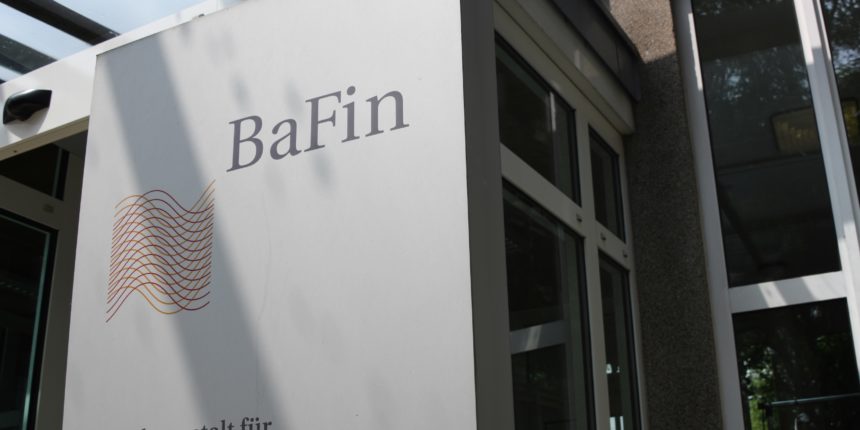German regulator approves $280 million in Ethereum token sales
The blockchain startup Fundament has been approved by regulators to launch the first public token-backed real estate support bond for individual investors.

The Berlin-based company announced on Tuesday that it has been approved by the German financial regulator BaFIN, which will provide a token of 250 million euros ($280 million). Due to proper supervision, there is no minimum investment limit for tokens and it will be open to all individual investors.
For example, someone in Indonesia will be able to purchase 100 euros of Ethereum tokens through Fundament to indirectly invest in commercial real estate in Germany.
- Speed of light hits the face! US securities giant TD Ameritrade has not launched bitcoin futures trading
- The US Congress hearing came again at the end of the month, this time the target is digital currency!
- An article to understand the investment logic of the Web 3.0 era: the analysis of the investment philosophy of the famous American digital currency fund Fabric Ventures
The BaFin representative told Coindesk: “We confirmed the approval of the Fundament Group's prospectus. This is indeed the first time we have approved a prospectus based on blockchain real estate bonds. Although this is not the first approved blockchain application.”
The token will begin market sales next month and will be run on the public Ethereum blockchain using the ERC-20 standard popular in the 2017 ICO boom.
Blockchain real estate is a hot area. Fundament Group co-founder Florian Glatz said that in the past it was usually a private placement that did not require the approval of a prospectus or financial market management agency.
For example, in March of this year, Inveniam Capital Partners in the WeWork property in downtown Miami, Florida, tokenized four private real estate and debt transactions worth $260 million.
Other examples include Templum Markets, which sold safe tokens representing Colorado ski resort stock last year, accepting dollars, bitcoins, and Ethereum. In addition to real estate, companies such as Nivaura in the UK have developed token-based debt and equity under regulatory supervision and are approved to trade in the secondary market.
Glatz said: “We have experienced this long and tedious process with regulators to avoid future restrictions. Usually these projects have a minimum investment limit, usually requiring more than 100,000 Euros, which will limit the number of investors. Fundament got rid of this restriction and will be the world's first real mass market tokenized real estate."
Compliance challenge
Fundament's tokens will cover five architectural projects: three in Hamburg, one in Frankfurt, and one in the university town of Jena. The project includes residential, commercial and hotel properties with a total area of over 680,000 square feet. The company expects project returns to be at medium to high numbers.
“holding tokens guarantees holders legal requirements for bond issuers – paying them a dividend of about 4-8% per year; and once the fund’s operation is up or down, the token holder will receive the full amount of the fund. Value," Glatz said.
In order to comply with the Customer Understanding (KYC) and Anti-Money Laundering (AML) regulations, IDnow will be responsible for verifying the identity of the token purchaser. The process takes an average of three minutes and the user can then purchase the token.
Buyers can pay tokens in Bitcoin, Ethereum, US Dollars or Euros.
Completing the project within the limits of the European regulatory framework MiFID II is a challenge.
“We submitted the prospectus in December 2018 and was approved last week. So this is a 6 to 7 month job,” Matzke said. “Every two or three weeks you get a 20-page request from the regulator, and you need to change something. Go back and forth in a few months, and all the files add up like a hundred-page book.”
If the founding team doesn't have as many legal and technical experts, the whole thing is almost impossible to achieve; in other words, because they are lawyers themselves, they don't need to spend a lot of money on legal fees.
“We saved a lot of time here,” Matzke said.
According to a report on July 11, the US Securities and Exchange Commission (SEC) has allowed blockchain startup Blockstack to issue $28 million in tokens under the A+ rules.
The A+ rule is an initial public offering (IPO) alternative that is typically targeted at startups that need early financing. The public can participate in the financing of the A+ rules.
Blocksetack founders Muneeb Ali and Ryan Shea told The Wall Street Journal that they spent 10 months investing up to $2 million in order to get approval from the SEC. Ali said,
“Because the company and the US Securities and Exchange Commission must create a digital token product agreement for the A+ rule from the ground up, it takes a long time and cost.”
Image source: pixabay
By An RONG
This article comes from the push bitpush.news, reproduced need to indicate the source.
We will continue to update Blocking; if you have any questions or suggestions, please contact us!
Was this article helpful?
93 out of 132 found this helpful
Related articles
- I just visited Huaqiang North, I found that ants and horses are out of stock.
- The final is coming, Bitfinex responds to the allegations in detail, the last fight before the hearing
- Why do institutional investors use the exchange Bakkt as the gateway to the world of encryption?
- Read the article Bakkt: cryptocurrency of the New York Stock Exchange
- After approving cryptocurrency mining, will Iran become a global “mining paradise”?
- Viewpoints | Several major issues that Bitcoin still needs to solve in 2019 (I)
- Zhu Jiaming recommended: CFMI pass financial model and stable currency mechanism





